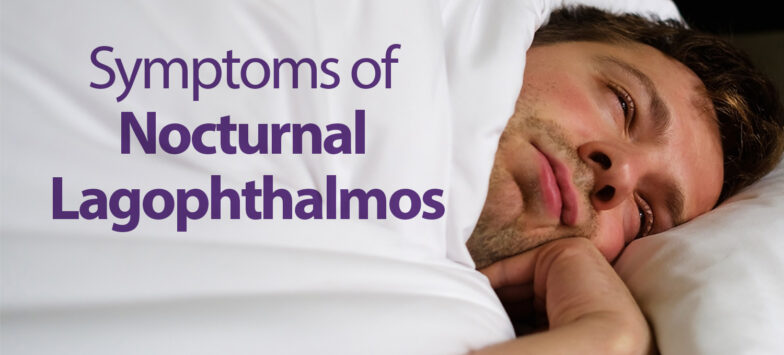
March is Sleep Awareness Month — Are You Peeping While Sleeping?
March is Sleep Awareness Month, a good time of year to take stock of whether the quantity and quality of your sleep is helping you to stay as healthy as possible. It is also a chance to consider if you are one of the people who sleeps with open eyes, a condition that negatively affects your eyes.
Being unable to close the eyelids is called lagophthalmos. If this only happens during sleep, it’s called nocturnal lagophthalmos. Your sleeping eyes don’t have to be wide open to cause eye problems. In most cases, the lids will close most of the way but not completely. But even a small opening in the eyelids can dry out the eyes overnight.
Over time, the eyes can become chronically dry and uncomfortable, leading to exposure keratopathy, scratches on the eye, corneal abrasions and corneal ulcers.
Symptoms of Nocturnal Lagophthalmos
According to the American Academy of Ophthalmology, if your eyes aren’t closing all the way at night, you might experience some of these symptoms:
• Dryness
• Feeling like something is in your eye (foreign body sensation)
• Red eyes
• Blurry vision (especially after waking up)
• Sensitivity to light
• Not sleeping well
Treatments are available for many of the causes and symptoms of nocturnal lagophthalmos. Treatments may include:
• Taping the eyelids shut with medically-safe tape, as directed by your doctor
• Using eye wetting drops or ointments at night, with or without taping eyelids shut
• Finding and treating any underlying condition that may be keeping the eyelids from closing completely
• Surgery to change how the eyelid moves
• Surgery to add weights to the eyelids to help them close
Nocturnal lagophthalmos usually doesn’t keep you from falling asleep or staying asleep. But the drying and irritation of the eyes could make sleep less restful. And that discomfort can continue after you wake up.
How can you know if you’re sleeping with your eyes open? You might need a partner, family member or friend to look or take a picture while you’re sleeping. Most of all, see your Atlantic Eye ophthalmologist, who will check whether your lids are closing fully during an eye exam.
